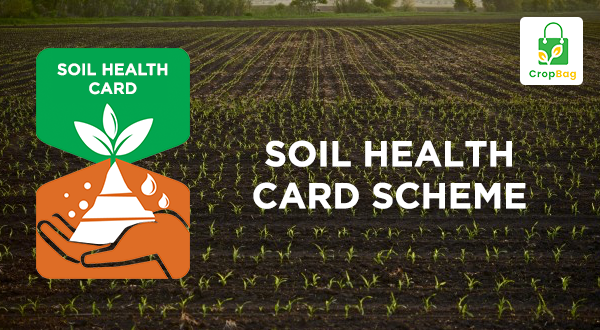World Soil Day: In 9-years, over 23 lakh SHCs issued in J&K
Post by Syeda Rafiyah on Wednesday, December 6, 2023

Srinagar, Dec 05: Under the Soil Health Card (SHC), a Government of India scheme, a total of 23,207,15 soil health cards have been issued in Jammu and Kashmir since its inception, officials said.
As per official figures of the Directorate of Agriculture Kashmir, under the Central Government Scheme Phase-I (2015-16 to 2016-17) 672,093 cards were distributed, while under Phase-II 1,015,182 cards were given from 2017-18 to 2018-19.
In 2019-20 a pilot project “Development of Model Villages” was implemented under which sampling and testing of cultivable soil was done in partnership with the farmers. The figures include 58460 cards issued under a pilot phase (model village basis) during 2019-20.
The figures said that 58,460 soil health cards were issued under the State Cycle during 2020-21. Likewise, 131,821 cards have been issued to farmers during the year 2020-21. Similarly, 37,893,3 cards were issued from 2022-23, as per the official figures. Similarly, 6766 soil health cards have been issued from 2023-24 till date.
As per the figures shared by the Agriculture Department the social testing laboratories have been strengthened in Jammu and Kashmir over the years and their number has increased.
He said today Jammu and Kashmir has a total of 53 soil testing labs which includes 30 in Kashmir and 23 in Jammu. The 53 includes 21 Village Level STLs, 12 Mobile Soil Testing Labs and 20 Static Soil Testing Labs.
Director Agriculture Kashmir, Chowdhary Mohammad Iqbal said Soil Health Card is a Government of India scheme promoted by the Department of Agriculture & Cooperation under the Ministry of Agriculture and Farmers' Welfare. It is being implemented through the Department of Agriculture of all the State and Union Territory Governments.
While talking about the benefits of the scheme, he said a Soil Health Card is used to assess the current status of soil health and, when used over time, to determine changes in soil health that are affected by land management. The testing is done free of cost.
“A Soil Health Card displays soil health indicators and associated descriptive terms. The indicators are typically based on farmers' practical experience and knowledge of local natural resources. The card lists soil health indicators that can be assessed without the aid of technical or laboratory equipment,” Iqbal said.
“Soil Health Card Scheme is a very beneficial scheme for farmers. Many farmers don’t know which types of crops they should grow to get maximum yield. They do not know the quality and the type of their soil. They might know by experience what crops grow and what crops fail. But they don't know what they can do to improve the condition of the soil,” he said.
When asked to share his comments on World Soil Day, the director said it aims to raise awareness about the importance and relationship between soil and water in achieving sustainable and resilient agrifood systems. He said soil testing is of utmost importance to ascertain the soil fertility.
Iqbal said soil and water provide the foundation for food production, ecosystems, and human well-being while recognizing their invaluable roles, “we can take proactive measures to safeguard these resources for future generations.”
“Soil erosion and compaction disrupt the capacity of soil to store, drain and filter water, and exacerbates the risk of flood, landslides and sand/dust storms,” he said.
He said that the rain-fed agriculture systems account for 80 percent of croplands, contributing to 60 percent of the global food production. “These systems rely heavily on effective soil moisture management practices.”
The director also said that irrigated agriculture systems withdraw 70% of the world's freshwater and account for 20 percent of croplands.
Iqbal also said implementing sustainable soil management practices enhances water availability for agriculture. “Healthy soils, enriched with organic matter, play a crucial role in regulating water retention and availability,” he said.